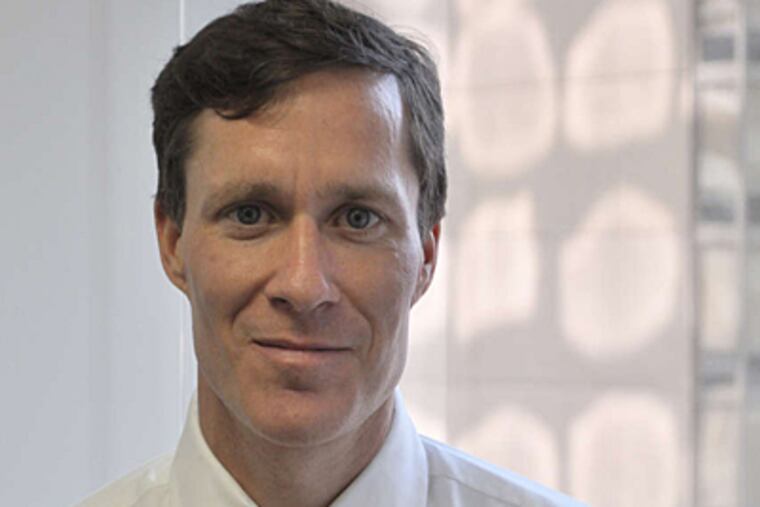PhillyDeals: Acquiring an opportunity to test drug-industry investments
Janney Capital Markets is betting on a drug-industry revival. The Philadelphia investment bank last week hired a team of dealmakers and stock analysts from bankrupt San Francisco stock-trading and research firm ThinkEquity L.L.C. to hunt for deals and profit among emerging pharmaceutical firms, medical device-makers, and biotech developers.

Janney Capital Markets is betting on a drug-industry revival.
The Philadelphia investment bank last week hired a team of dealmakers and stock analysts from bankrupt San Francisco stock-trading and research firm ThinkEquity L.L.C. to hunt for deals and profit among emerging pharmaceutical firms, medical device-makers, and biotech developers.
"Philadelphia and the surrounding area is a hub for health-care companies. It provides a lot of growth product for our sales and trading team, and it's an area of investment banking where we collectively think we can compete, with the right team," said Christopher White, head of investment banking at Janney.
The company is part of the largest Philadelphia stock-and-bond brokerage, Janney Montgomery Scott, a unit of Horsham's customer-owned Penn Mutual Life Insurance Co.
But pharma-industry growth and stock offerings declined in the mid-2000s, and Janney dissolved an earlier health-care team to concentrate on computer-service companies, banks, utilities, retailers and restaurants, municipal bonds, and other promising sectors.
Why try again now? White pointed to the 13 drug, biotech, and medical-equipment initial public stock offerings (IPOs) on U.S. markets so far this year, including Globus Medical Inc. of Audubon, Montgomery County, and a collective median share-price gain of 12 percent.
By White's count, medical IPOs accounted for about one-eighth of new public companies in 2012, roughly equal to the sector's proportion of the S&P 500 big-company stocks - and about one-third more than gas and energy companies, which have attracted more interest.
These new companies aren't household names like Merck & Co. Inc., GlaxoSmithKline, or Pfizer Inc., but investors hope they are the next generation.
"Big pharma companies have really outsourced their new product development" to smaller biotech firms, White said. "They're reducing R&D budgets and letting somebody else do the hard work in clinical development."
Those smaller firms need to raise cash and, eventually, lure buyers. While researching them for potential investors, Janney hopes to attract lucrative advisory and sales deals for its investment bankers.
Janney's core markets include the U.S. Route 202 office district near King of Prussia and the U.S. Route 1 corridor north of Princeton, two of the handful of big-league research centers that are along major highways near key universities and that attract a disproportionate share of American research labs, scientists, and funding. This according to economists Robert M. Hunt and Gerald A. Carlino, who wrote about these sectors in a study published last month by the Federal Reserve Bank of Philadelphia.
The new Janney team includes:
Spencer Nam, who covers medical devices and diagnostics research.
Jim Molloy, specialty pharmaceuticals. He and Nam
are based in Boston.
Kimberly Lee, biotech. A gynecologist by training, she'll work from San Francisco.
Investment banker Josh Muntner, based in New York.
Banker Richard Page, a Haverford College graduate, also based in New York.
"We're opportunistic," White said. "Penn Mutual, as our owner, is private and patient. So we have an opportunity to invest while everyone else is coming apart."
ThinkEquity's bankruptcy, seven years after its founding by a couple of Merrill Lynch veterans, created an unusual opportunity to bring in a group of medical- investment specialists who are used to working together.
"It would be very difficult if we had tried to do this piecemeal," White said. "We got a unified team that worked well together for a couple of years."
or follow on Twitter @PhillyJoeD.